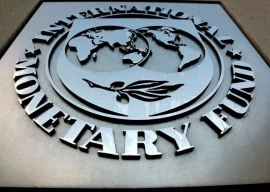
NOWSHERA/ JALOZAI CAMP:
Almost three years ago, Shah Jahan heard an announcement on the radio from the authorities in Bara, his home town. “They asked to get out as soon as possible because the security forces were moving in to clear the area of militants,” he says.
This was the third such operation in the area. Bara and its environs have since been the site of a conflict that is yet to end. Shah Jahan has been unable to go back home, or whatever is left of it. Even before his arrival at the Jalozai camp, where he now lives, he received a message from neighbours that his house had been destroyed. “We did not even have time to get any of our belongings, and now everything is gone,” he says.
The Jalozai camp was originally established to give refuge to the Afghans in the Soviet war more than three decades ago. “We never thought we would be displaced in our own land, and we are like the forgotten ones,” Shah Jahan says.
Shah Jahan and his family headed to Jalozai, thinking they would be looked after. But for the first year or so, they had to fight to get themselves registered. “Nobody guided us here when we came. And there are many still that are being registered and till then they get no help,” he says, introducing others who have gathered around to show their identity cards. “And no one tells us when we will go home. There is no timeframe for the operation in our area,” he adds.
Every morning, the refugees here line up for their verification process and then get in lines for rations. On other days, the family heads have to stay inside their shelters because if they are not ‘home’ when the inspection team comes, the family risks losing their right to live there.
“We cannot even go and find work, we are stuck in the camps,” says Jan Mohammad, who has lived in a tent near Shah Jahan’s for more than four years since the operation started in Bajaur Agency, where he is from.
According to the FATA Disaster Management Authority, currently more than 150,000 registered families live in camps like Jalozai and New Durrani camps, and yet only half of this population is verified, while the others are still waiting for the process to be completed. Till then they face issues in claiming aid.
But even for those who do get the benefits, not much is offered by the Pakistani government, which is cash-strapped already with other economic woes. Therefore most aid comes in through foreign donors who complain of bad treatment. “The Pakistan government does not want us to refer to the conflict in FATA as conflict,” says a development worker with the United Nations operating in the area. “We faced a lot of heat when we did in our publications.”
The refugees from these tribal areas do not like to talk about the militancy too openly either. “There are spies everywhere, and we can get into trouble so we keep our mouth shut,” says Shah Jahan, who mentions a case which happened earlier that day.
“A refugee from Bara was picked up by security agencies and his wife and mother came to ask me to help them look for him,” he says. When asked what will happen to the man, before he can answer, another man standing there responds: “His family will be told his body was found in Bara during a search operation.” Shah Jahan says scores of people have been picked up by authorities for questioning and many never come back.
According to recent amendments in the Frontier Crimes Regulations (FCR), the security forces conducting operations have been given more powers. “The new amendments in these laws do not have much regard for human rights,” says Habib Afridi, a political activist from Jamrud, who has been raising awareness in tribal areas to bring FATA into the democratic framework which applies to the rest of Pakistan.
Other amendments in the FCR include extending the political parties act in FATA, which Habib welcomes, but the refugees at the Jalozai camp feel otherwise. “Who should we cry to? We have no one to represent us as yet,” Shah Jahan complains.
His friend and neighbour Jan Mohammad feels he has been betrayed by his own countrymen. “My son used to sing the national anthem at his school. Now he works at a brick kiln factory. This is the reward for our loyalty to Pakistan?”
Published in The Express Tribune, March 20th, 2012.
COMMENTS (3)
Comments are moderated and generally will be posted if they are on-topic and not abusive.
For more information, please see our Comments FAQ






















1712071304-0/image-(14)1712071304-0-270x192.webp)



















over a hundered thousand people have moved out of Khyber over the last two months, but there is very little coverage in the media. All these people are simple villagers who have been caught up in a vicious game. They are almost without any rights and are treated as cattle be the security forces.
Thankyou for highlighting the plight of FATA IDPs
Very Good piece. Just a suggestion..there should be a link to part 1 of the article on the right side of the page. Thanks